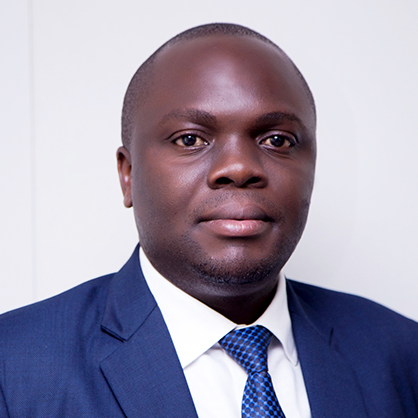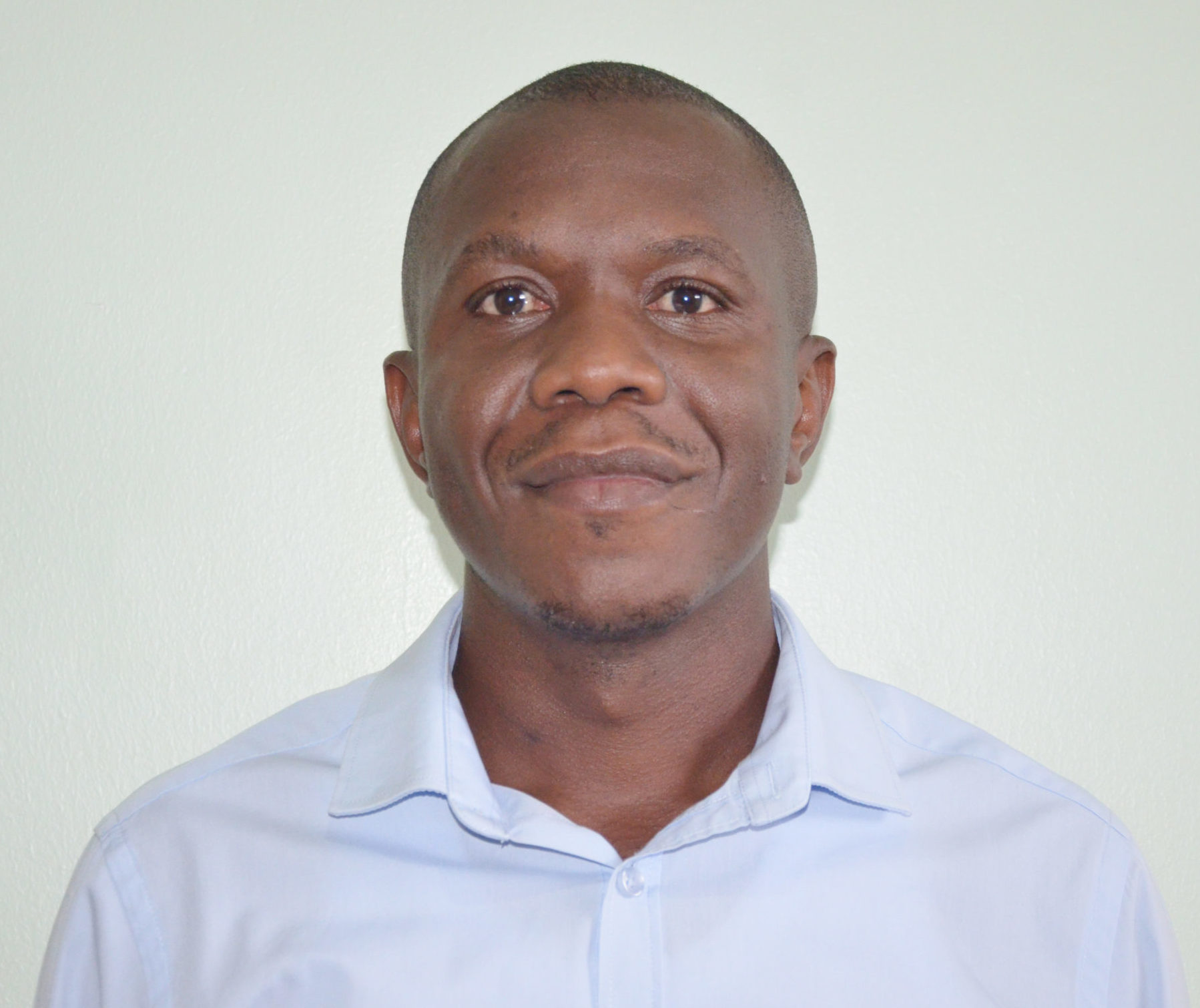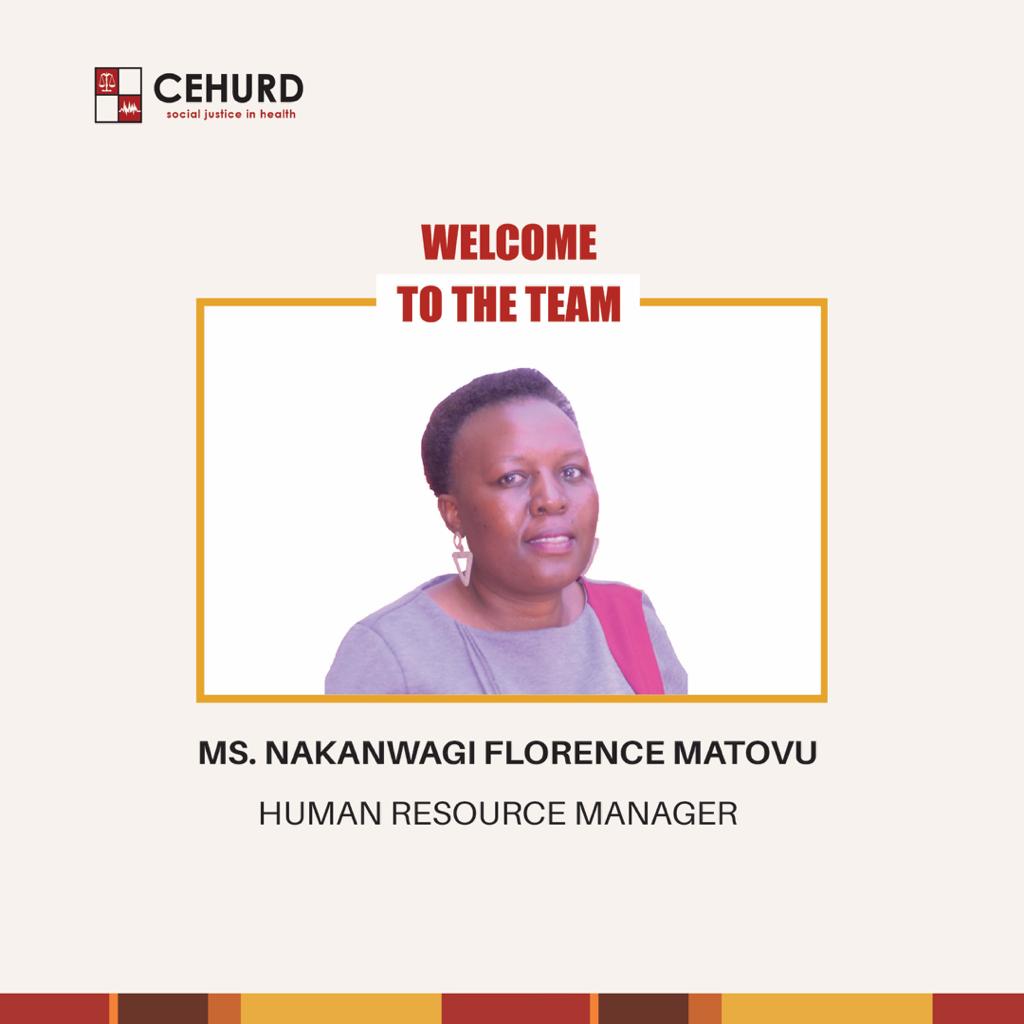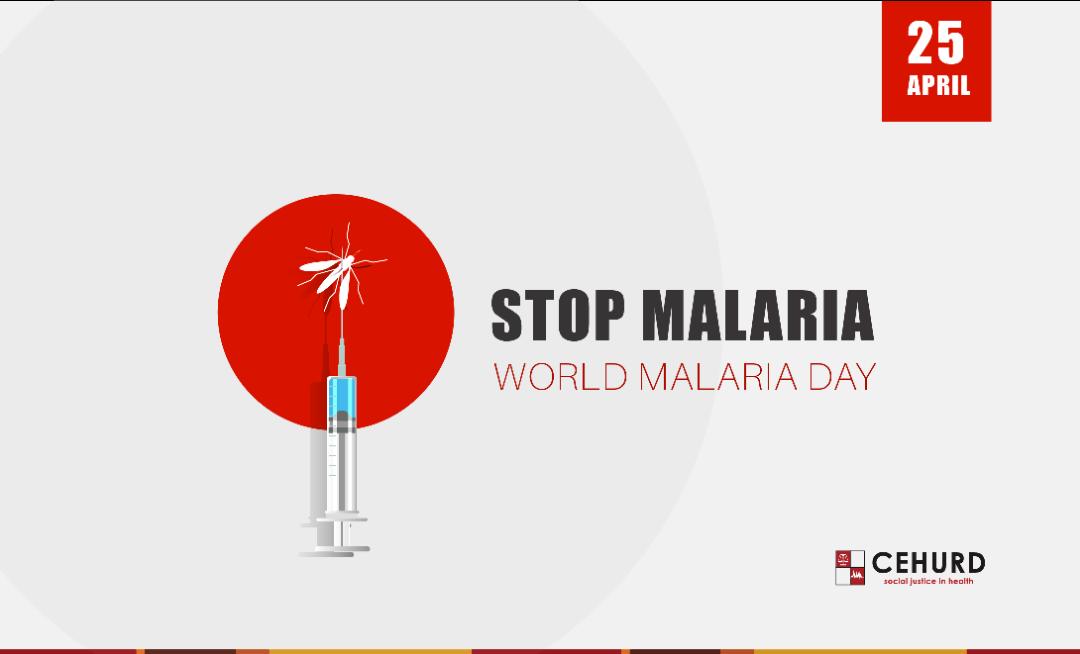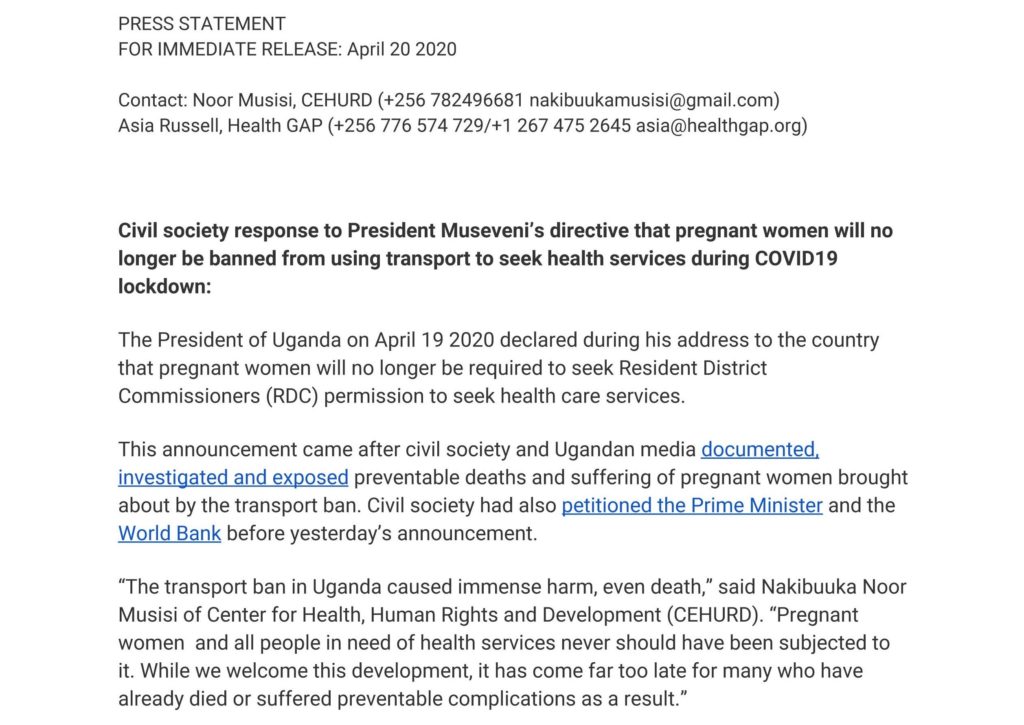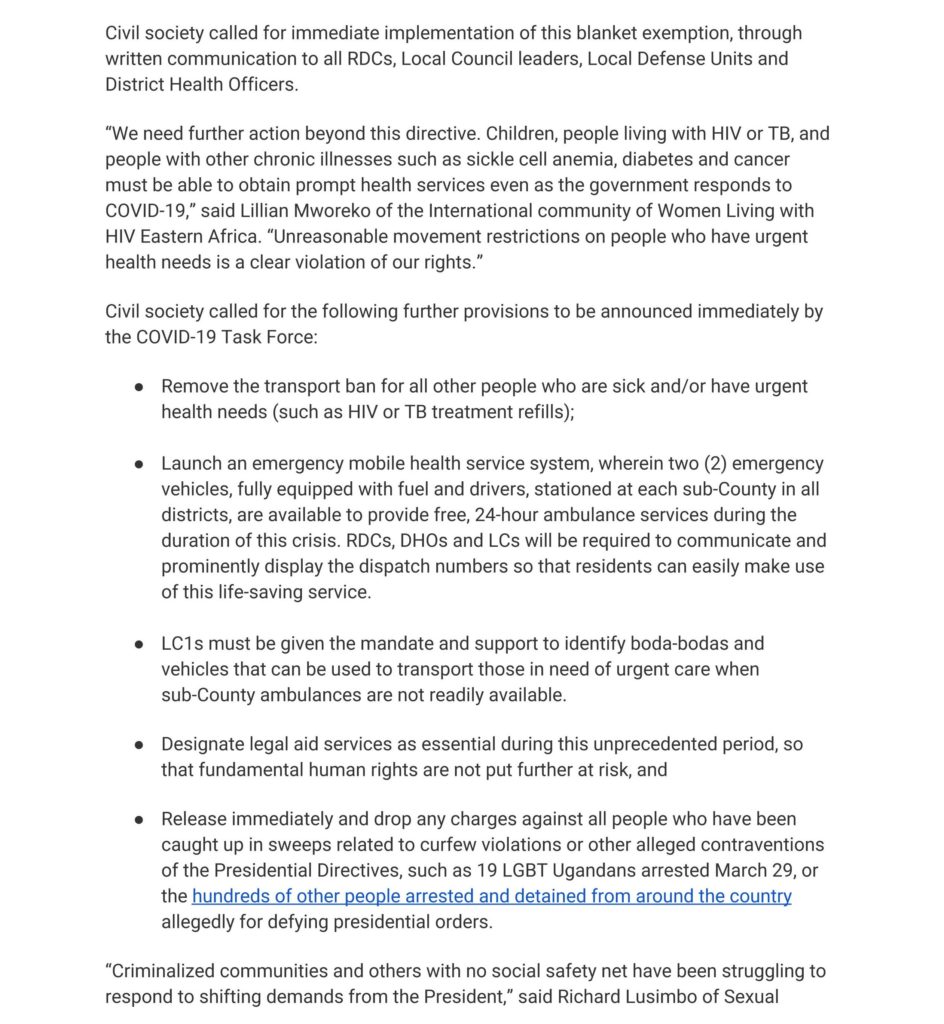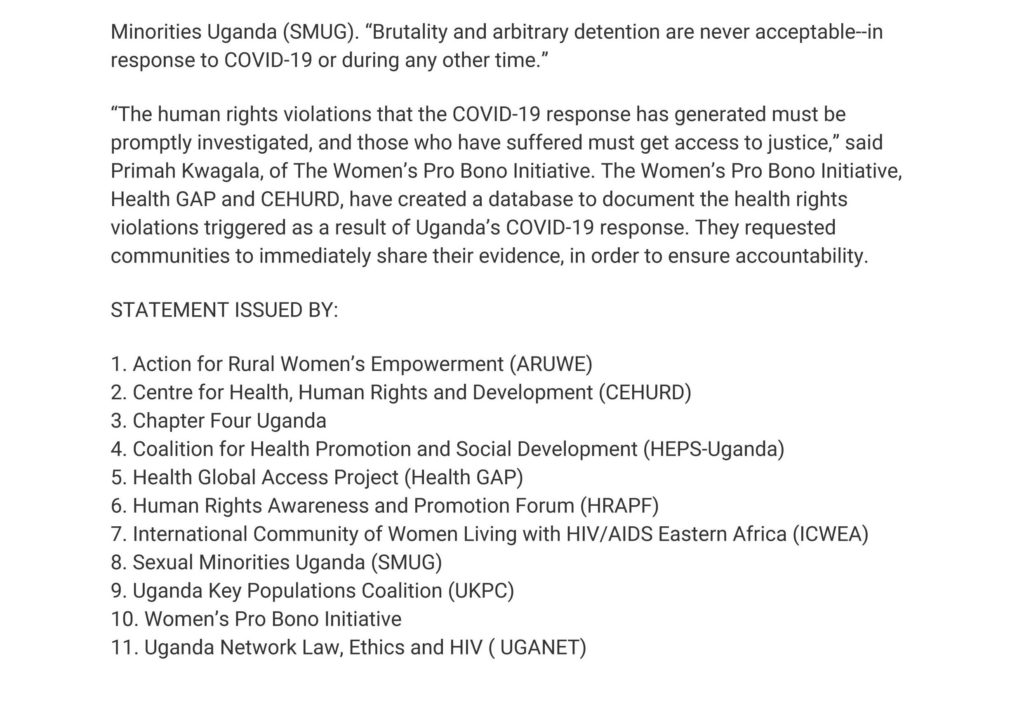Moses Mulumba, Executive Director -CEHURD
As the state and non-state actors take steps in dealing with COVID-19, I would wish to remind them of the need to urgently strike a balance between these prevention approaches and rights with collective responsibilities. While the state must take efficient intervention, which includes undertaking the right to health impact assessment of interventions, individuals should be taking responsibilities of complying with guidance from the Ministry of Health including social distancing, hand washing and taking other measures that have been identified as effective in preventing the further spread of the virus.
From a right to health perspective, it is important for the government of Uganda to ensure that prevention and treatment measures in form of supplies and commodities, such as sanitisers of sufficient quality, are available, accessible, and affordable for the most vulnerable communities including: the older persons, those under incarceration, refugees and the very poor. There is also dire need to devise strategies on how poor households, communities and hard-to-reach places without access to clean water, or those who cannot afford and / or access soap, detergents and sanitisers can utilise the prevention measure on hand washing with soap and water. Equitable access to information on COVID-19, must be availed to those that may not access it through the conventional avenues.
Community participation and solidarity are pillars that have historically been critical in controlling and managing similar outbreaks in Uganda. The effective use of the formal and informal community participation structures in our health system will ensure that communities are active and informed participants in the creation of a responsive health system. In the social isolation mechanism, identification of cases and first management of these cases starts from the family unit and the communities and as such; communities must be viewed as active participants who need to be provided with sufficient, updated and timely information including clearly defined referral systems for the management of COVID-19 cases.
In times like these, the Government’s obligation of protecting the public from third parties violating the rights of communities becomes very important. We envisage that cases of private actors seeking to make earnings out of the desperate situation on COVID-19 will be on the rise. The much-needed commodities like sanitisers, soaps, masks etc will be faked and/or counterfeited and in some cases sold on the black market much more expensively to the communities. In places where there is absence of government isolation centres, private sector facilities may be provided as an option but at a cost that is unaffordable and out of reach for many of those that are subject to quarantines. Research attempts, including clinical trials will be common and some of these may threaten the key ethical and human rights principles of research. The government needs to make full use of the policy space Uganda has in intellectual property as an LDC to enable it utilise new innovations. We therefore call upon the state to pay particular attention to the right to health implication of commercialisation of commodities and other key services in the era of COVID-19.
We call upon the Government of Uganda to pay extra attention to vulnerabilities in the communities and those faced with the burden of being healthcare providers and carers in the times of COVID-19. While the majority of the reported cases in different regions are men, women are the care-givers which, not only puts them at a higher risk of contracting the virus, but also neglecting their other health and human rights. With social distancing and self-isolation, no alternative options are being proposed and implemented to ensure that girls and women continue to access sexual and reproductive health services. Those in prisons and police custody have particular vulnerabilities and interventions packages should be defined to reduce their risks.
We need to evaluate the extent to which information is reaching those in hard-to-reach areas such as islands, remote and inaccessible areas, pastoral communities, and settlements for refugees and internally displaced persons.
Lastly, as General Comment 14 on the Right to the Highest Attainable Standard of Health provides, violations of the right to health occur when the state, among other things deliberately withholds or misrepresents information vital to health protection or treatment. This can also happen when the state suspends a legislation or when it adopts laws or policies that interfere with the enjoyment of any of the components of the right to health. Given that Uganda’s legislation on public health is over 85 years old, we must make an urgent effort to review the key provisions under the Public Health Act that are central for Uganda to have effective responses for global pandemics like COVID-19. Regulatory approval for new medicines and speedy attention to developing new formulations for the prevention and treatment of COVID-19 are important considerations too.
Let us all take care of ourselves, those around us and stay healthy.
The writer is the Executive Director of Center for Health, Human Rights and Development (CEHURD)
A version of this article was originally published in the Daily Monitor.

